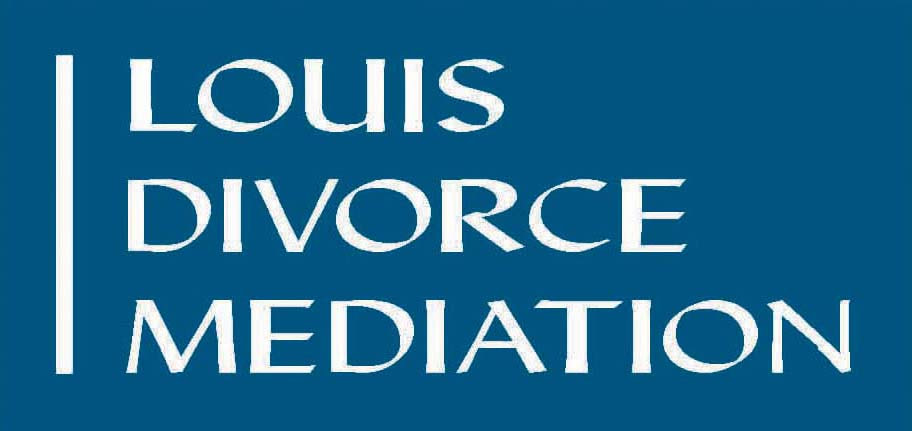Louis Divorce Mediation ~ Online and In-Person Mediation in Chicago
|
In my own divorce mediation practice over the years, I’ve found that most clients who start the mediation process with me stay with mediation and keep me as their mediator until a complete agreement has been reached. That’s probably true for most mediators.
Sometimes the fit between mediator and clients is not a good one, and this may not be discovered until the process has already begun. Occasionally, I’ve started mediation with clients who choose to move on to another mediator. Sometimes the fit between mediator and clients is not a good one, and this may not be discovered until the process has already begun. I’ve also noticed that the timing of taking up mediation in the divorce process may influence whether a couple stays with their original mediator. The earlier that you find yourself in the divorce process, the more likely it is that one or both of you will decide you are not yet ready to focus on the hard work of making a plan for moving forward. As time passes, and readiness for both of you improves, emotions surrounding an early encounter with a mediator may cause the couple to reset with a new mediator. I’ve learned to accept this reality, both as one who has seen clients move on to another mediator, and as the mediator who has been engaged by a couple that had previously worked with another professional. Recently, a couple sought me out because of dissatisfaction with their current mediator. In our consultation, I learned from them about mediation sessions being arbitrarily rescheduled by the mediator, a sense of not being “trusted” by the mediator, a lack of responsiveness and a lack of transparency. Admittedly, I don’t know what the other mediator would say in response to those claims. What I do know is that the values that were missing in the mediator these clients originally chose are exactly the values that I (and most mediators) stand behind— building trust, being flexible, being available, being responsive, being transparent. I want my clients to know who I am, what I do, how I do it, and why I do it. While I accept that, along the way, I’ve seen clients move on to a new mediator (and surely this will happen again in the future), I am hopeful that those decisions will be based on factors that are beyond my control.
0 Comments
Agendas can be very useful. In meetings, whether mediation sessions or divorce sessions with a collaborative divorce team, an agenda keeps us focused on the topics to be addressed.
While I am prepared to structure each and every mediation session, I want you to know that I will always be ready to help you with what is most important to you in mediation discussions. As a mediator, my tendency is not to provide a formal agenda for a mediation session. That way I am honoring the wishes of clients, leaving things open to discuss what you want to address at a particular session. While I am prepared to structure each and every mediation session, I want you to know that I will always be ready to help you with what is most important to you in mediation discussions. While an agenda that represents a structure and a plan for discussion can be constructive, bringing “one’s own agenda” to a mediation session or collaborative divorce session can be risky, if not dangerous. Why risky? Whether it is a professional—a mediator or collaborative divorce attorney or neutral—or a client who comes with “an agenda,” that gesture can often be perceived as an effort to “control” the conversation or impose a set of your own values, beliefs and needs on others. Instead, honestly sharing about what is important to you is an entirely appropriate way to ask for understanding. If a mediator or collaborative facilitator imposes an agenda on the process, this can result in the conversation, and even the outcome, taking a direction overly influenced by the professional. What is preferable is engaging you as the clients in a process that empowers you to have a constructive dialogue that will promote understanding and resolution of the difficult issues involved in a divorce. If you, as a spouse in a divorce mediation or collaborative divorce process, put forth your agenda, then your spouse may very well see this as a set of demands. I’ve found that when you shift your focus from “demands” to “proposals,” your spouse sees an invitation to consider an idea, instead of feeling pressured into an outcome that may not want be wanted. Agendas, like mediation, work best when they function as neutral. As an individual, I would be the first to admit to being a private person. While I may share personal details with friends, I am less inclined to do so with those I don’t know so well. While I own a personal Facebook account (I even once posted on Instagram!), my activity is limited to mostly acknowledging the kind birthday wishes of others and offering news regarding the accomplishments of my children and grandchildren. (Yes, I am a proud dad and Papi!)
I have a completely different perspective when it comes to my work as a family and divorce mediator. I want you to know as much about me as you want to know, whether it’s about how old I am (see above—I’m old!), my life experience, even my thoughts when it involves the legal system that applies to divorcing couples. (Those are not particularly positive.) Mediation requires serious conversations that consider very personal topics. Your choice of a mediator is an important personal decision that you need to be comfortable with. When I am engaged to mediate, I take this as a symbol of trust based on your deciding that I’m a good fit for you and your spouse. Just as I see transparency as being essential to how I present myself to you, the mediation process itself must be transparent and open. Just as I see transparency as being essential to how I present myself to you, the mediation process itself must be transparent and open. This often begins with sharing my goals for the mediation process:
One of the key components of informed decision making is full financial disclosure. This aspect of transparency is not negotiable in my mediation practice. A marriage is, on one level, an economic partnership, and you both need to share with me and with each other the details of your financial circumstances. This transparency creates a level playing field, which reinforces my neutrality and ensures that financial decisions, like dividing your assets and debts, and creating a financial plan that establishes two sustainable households for you and your children, will be made under a bright light where we all see the same information. And can make the most appropriate choices. Learning is both rewarding and challenging, especially when one is acquiring new skills. This year, I am exploring new techniques to incorporate into my mediation style—techniques that are focused on enhancing the ability of clients to learn from and understand each other.
The emotions surrounding divorce, whether manifested as anger, fear, sadness, or concerns around the underlying uncertainty of one’s future, often translate into behavior that can block meaningful dialogue. When clients cycle into a conflict pattern of persuasion, justification, repetition, withdrawal or other defensive behaviors, the road to eventual resolution is blocked. To counter patterns of conflict, I seek to promote a mediation process that leads to understanding through constructive dialogue. Granted, understanding does not equal agreement, but it can form a foundation for considering ways to approach the difficult decisions that divorcing couples face. To counter these patterns of conflict, I seek to promote a mediation process that leads to understanding through constructive dialogue. Granted, understanding does not equal agreement, but it can form a foundation for considering ways to approach the difficult decisions that divorcing couples face. Each of us has values and beliefs that matter greatly to us, whether it is stability for our children, personal independence, effective and cooperative co-parenting, financial sustainability, or maintaining healthy relationships. If we perceive that any of these values are being challenged by the actions or words of others, there will be a tendency to push back. Usually our resistance will face equal resistance from the other person in the conversation. And so if you find yourself in that difficult conversation, going nowhere, I want to be there to help you both see what matters to the other, to ensure that you are interpreting accurately what your spouse is saying, and to help you share your vision of what can come out of a meaningful and constructive dialogue. My aim is to give you the freedom to create your own pathway to understanding each other better. As I endeavor to build on my mediation skills, I hope to expand the educational aspect of mediation to include your chance not only to learn from what I do, but also, more importantly, to learn from each other. |
Categories |
David Louis, MPA, CDFA® • Louis Mediation Services - Chicago
|
Chicago Office: 1700 W Irving Park Rd., Suite 105, Chicago, IL 60613
Northbrook Office: 555 Skokie Blvd., Suite 500, Northbrook, IL 60062 |
Copyright © 2024





 RSS Feed
RSS Feed